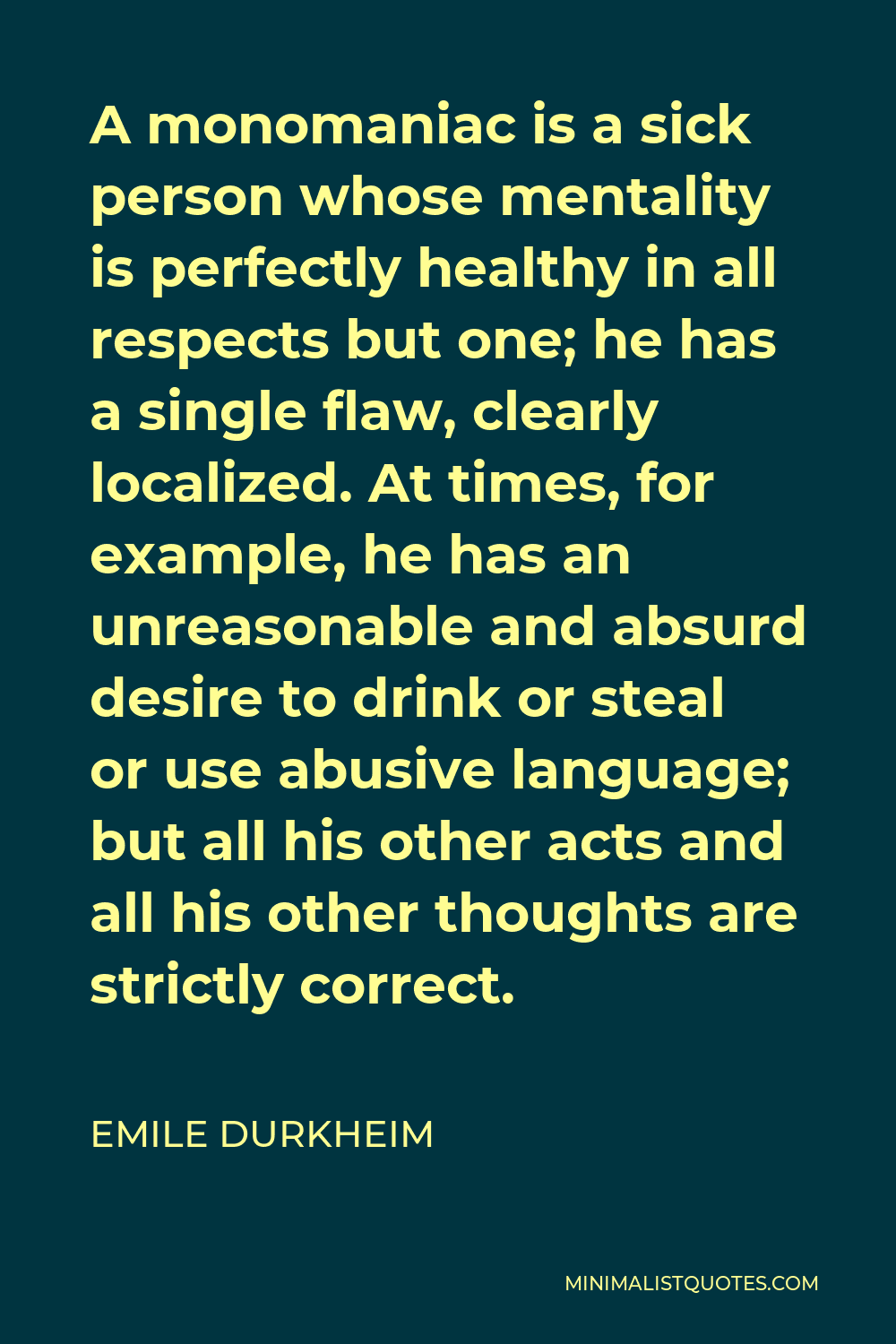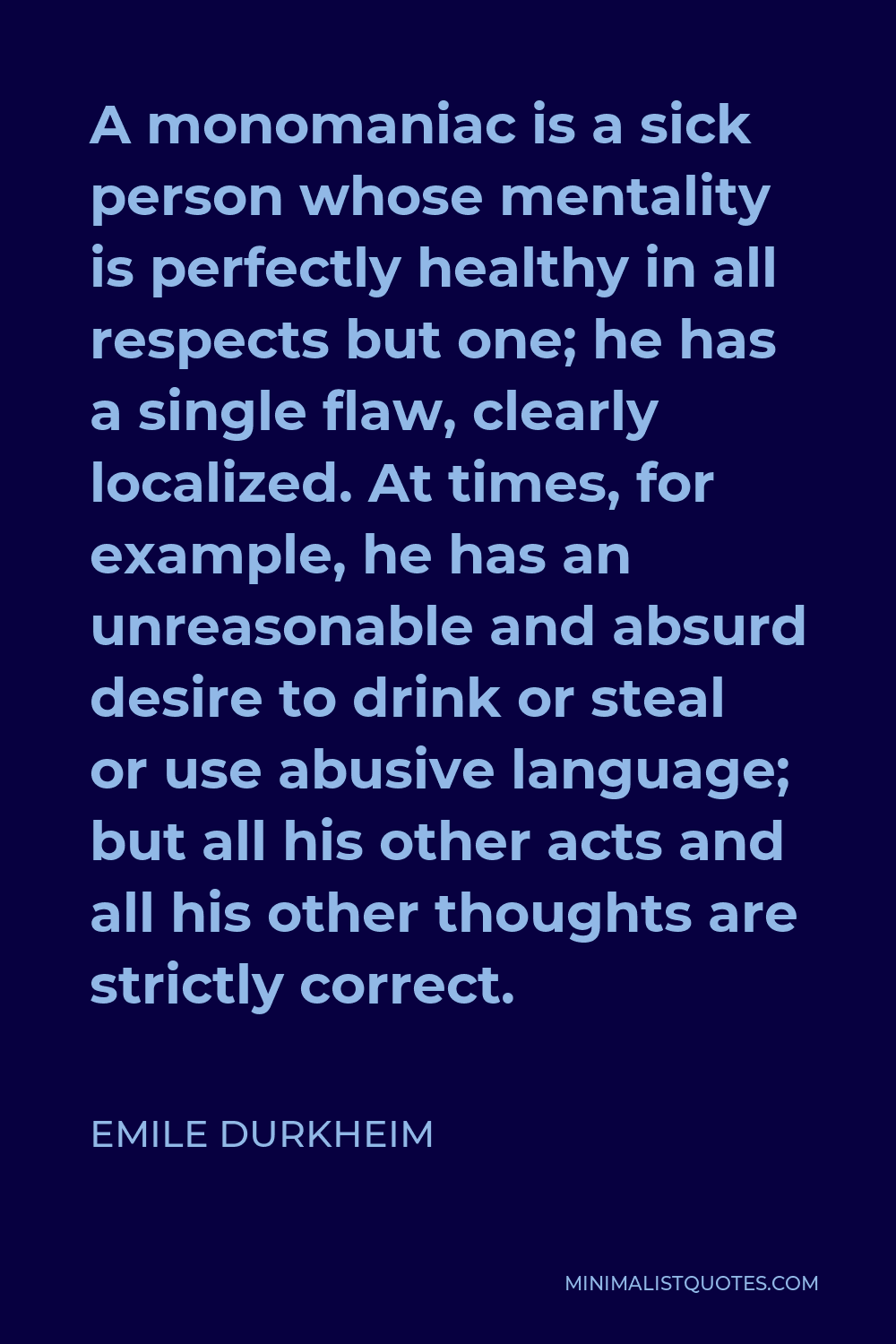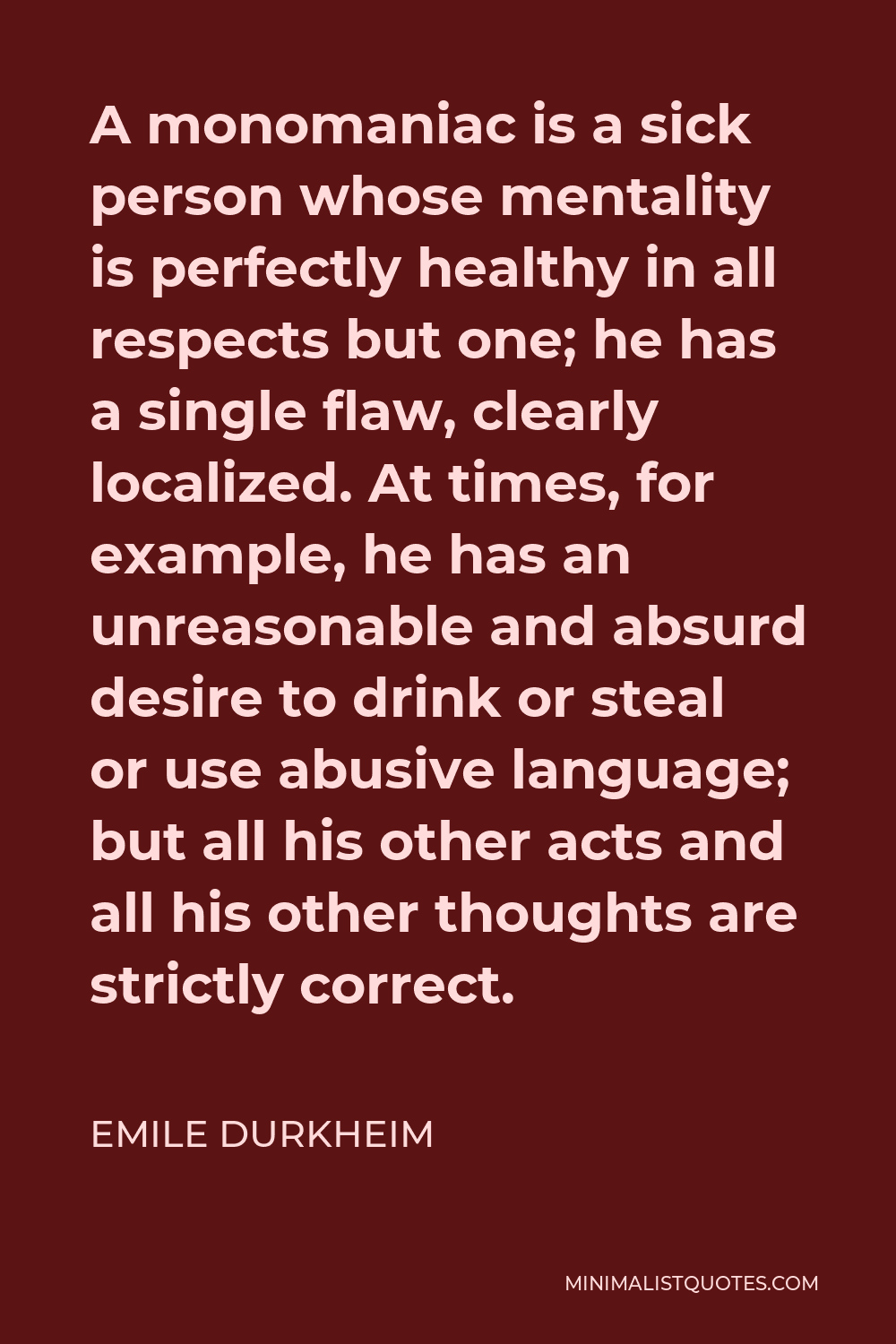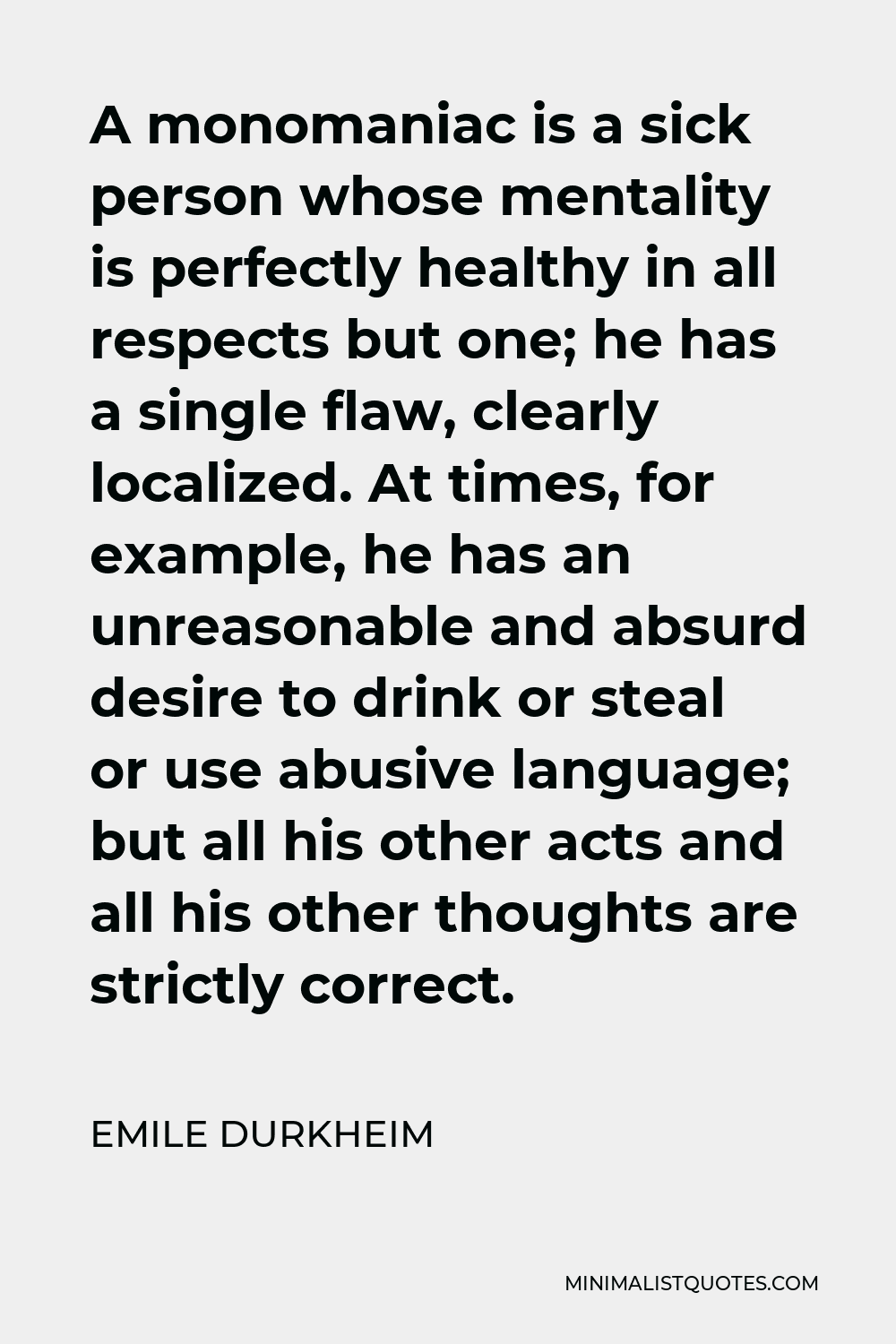An act cannot be defined by the end sought by the actor, for an identical system of behaviour may be adjustable to too many different ends without altering its nature.
EMILE DURKHEIMA monomaniac is a sick person whose mentality is perfectly healthy in all respects but one; he has a single flaw, clearly localized. At times, for example, he has an unreasonable and absurd desire to drink or steal or use abusive language; but all his other acts and all his other thoughts are strictly correct.
More Emile Durkheim Quotes
-







-





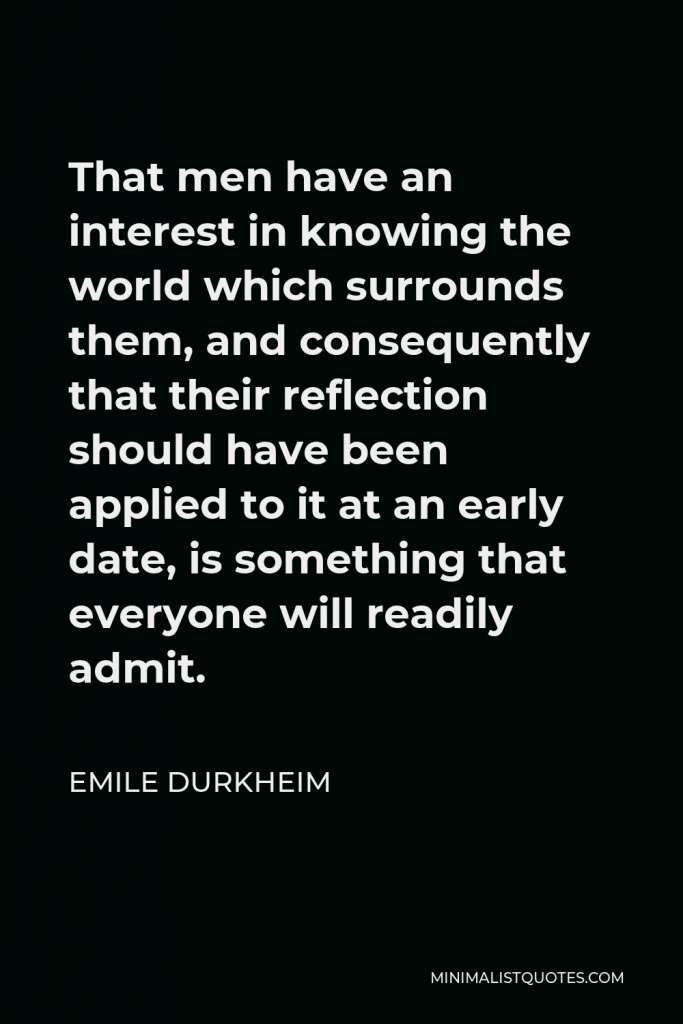

That men have an interest in knowing the world which surrounds them, and consequently that their reflection should have been applied to it at an early date, is something that everyone will readily admit.
EMILE DURKHEIM -





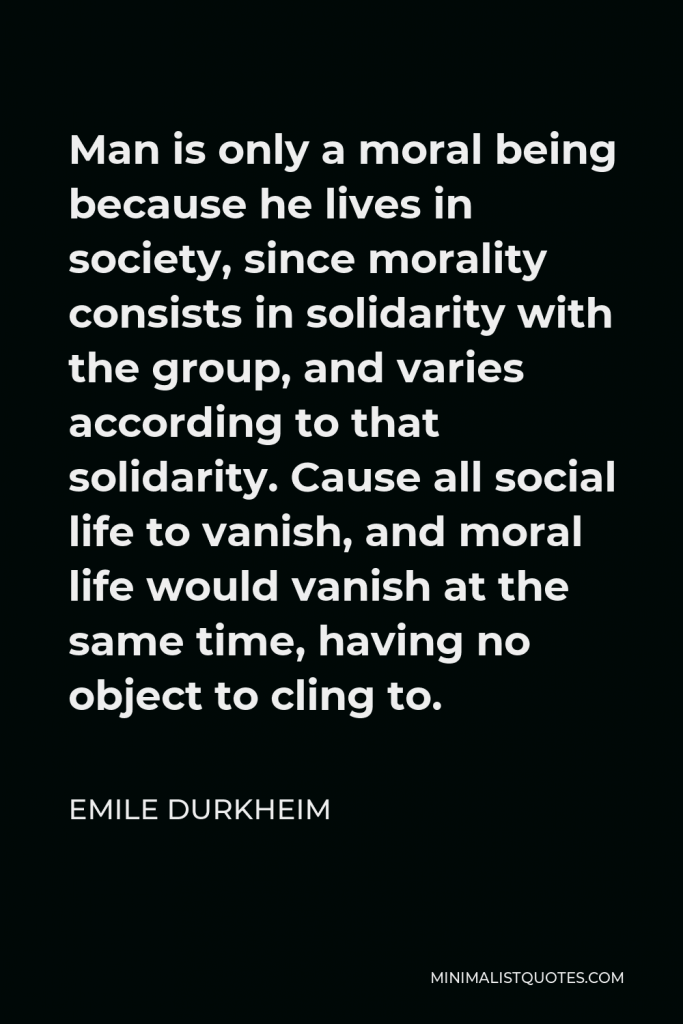

Man is only a moral being because he lives in society, since morality consists in solidarity with the group, and varies according to that solidarity. Cause all social life to vanish, and moral life would vanish at the same time, having no object to cling to.
EMILE DURKHEIM -





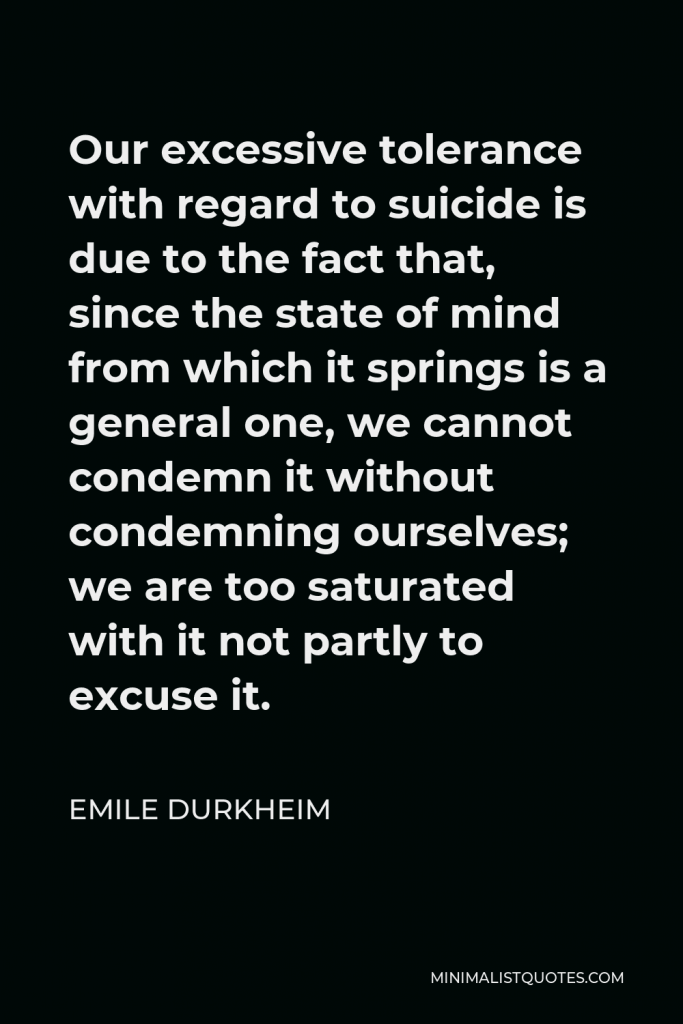

Our excessive tolerance with regard to suicide is due to the fact that, since the state of mind from which it springs is a general one, we cannot condemn it without condemning ourselves; we are too saturated with it not partly to excuse it.
EMILE DURKHEIM -





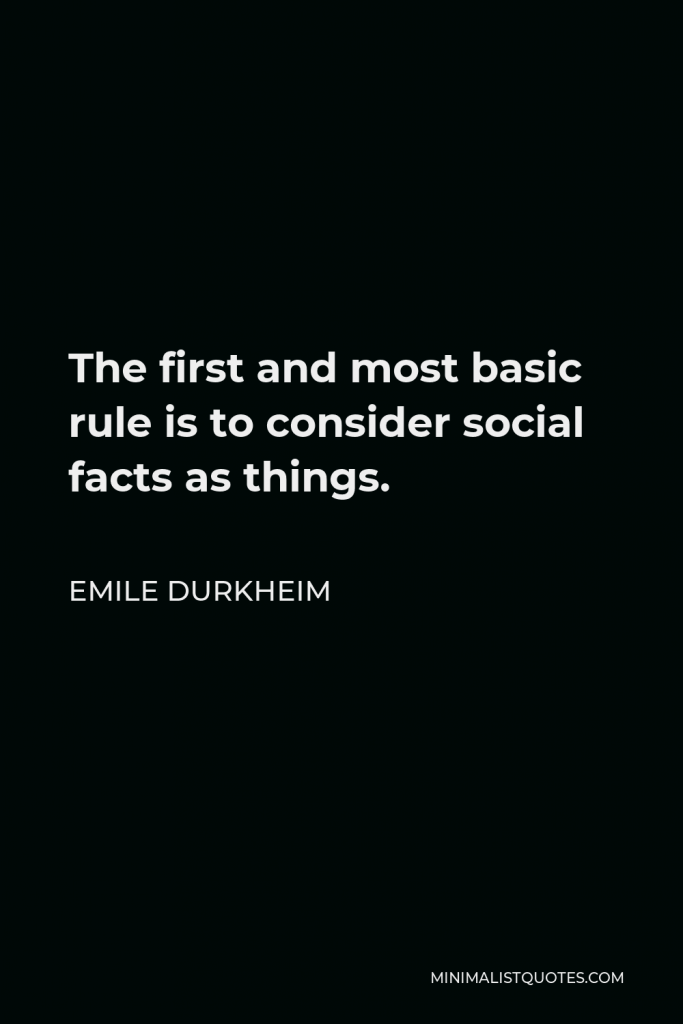

The first and most basic rule is to consider social facts as things.
EMILE DURKHEIM -







Man could not live if he were entirely impervious to sadness. Many sorrows can be endured only by being embraced, and the pleasure taken in them naturally has a somewhat melancholy character.
EMILE DURKHEIM -





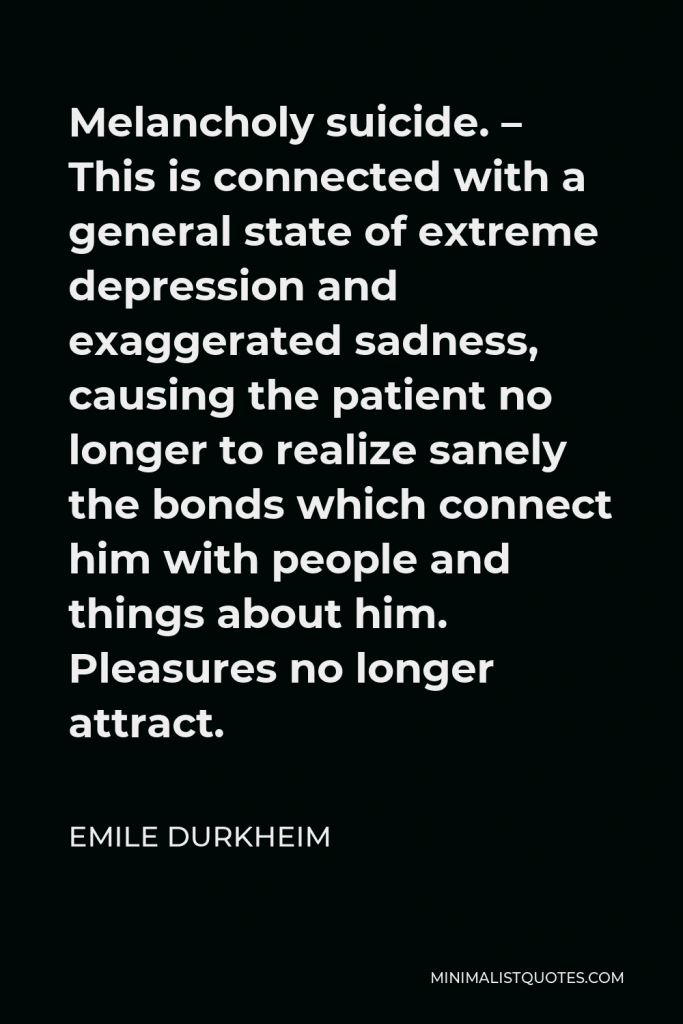

Melancholy suicide. – This is connected with a general state of extreme depression and exaggerated sadness, causing the patient no longer to realize sanely the bonds which connect him with people and things about him. Pleasures no longer attract.
EMILE DURKHEIM -







When man discovered the mirror, he began to lose his soul.
EMILE DURKHEIM -





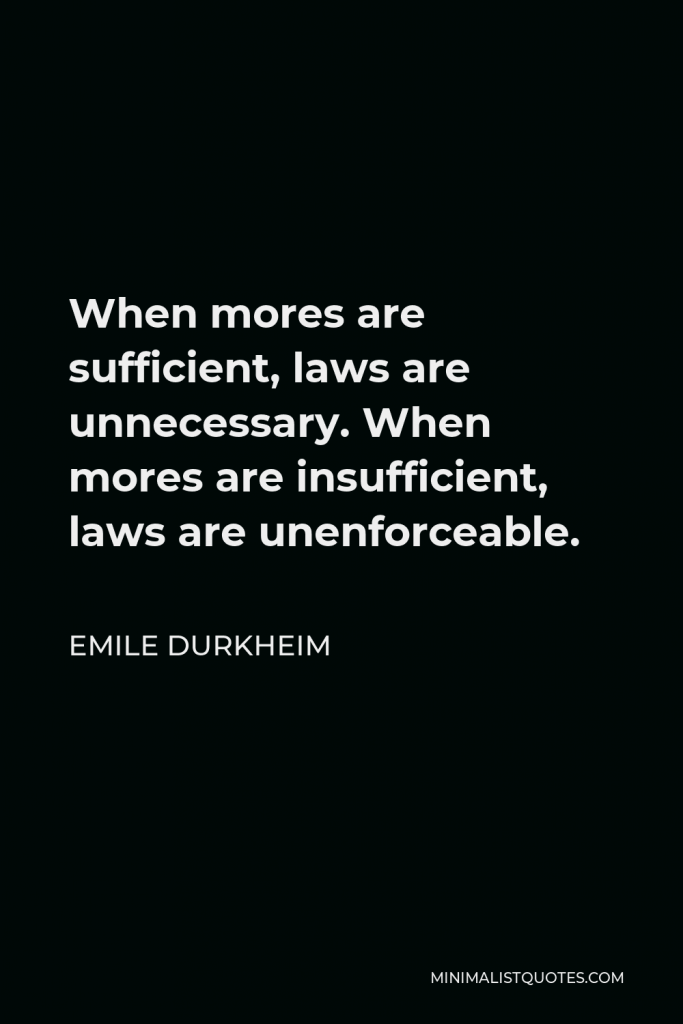

When mores are sufficient, laws are unnecessary. When mores are insufficient, laws are unenforceable.
EMILE DURKHEIM -





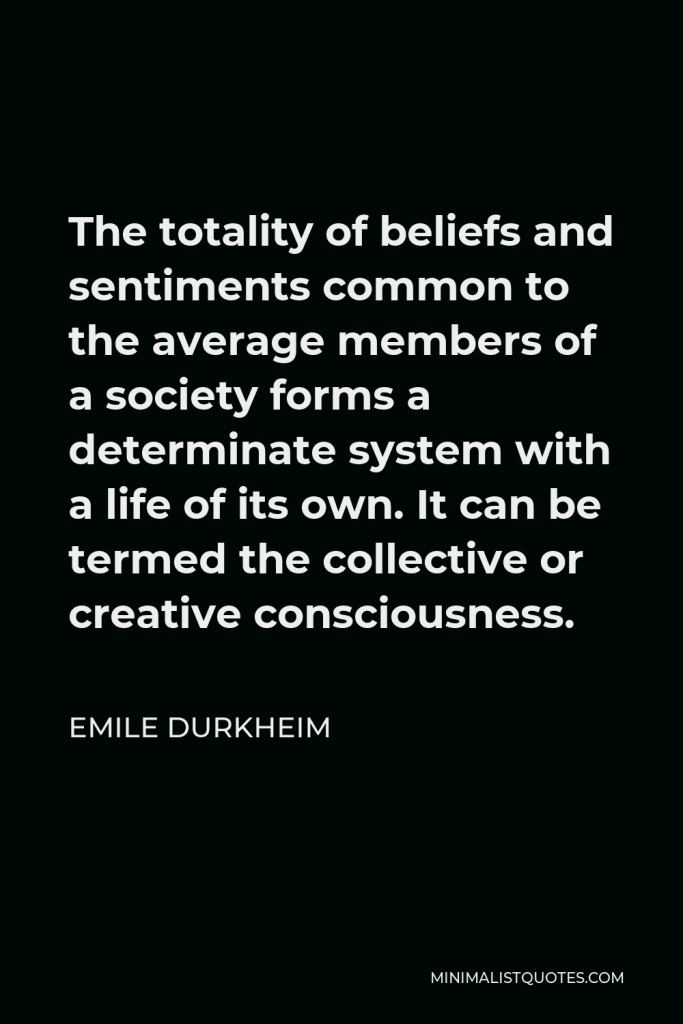

The totality of beliefs and sentiments common to the average members of a society forms a determinate system with a life of its own. It can be termed the collective or creative consciousness.
EMILE DURKHEIM -





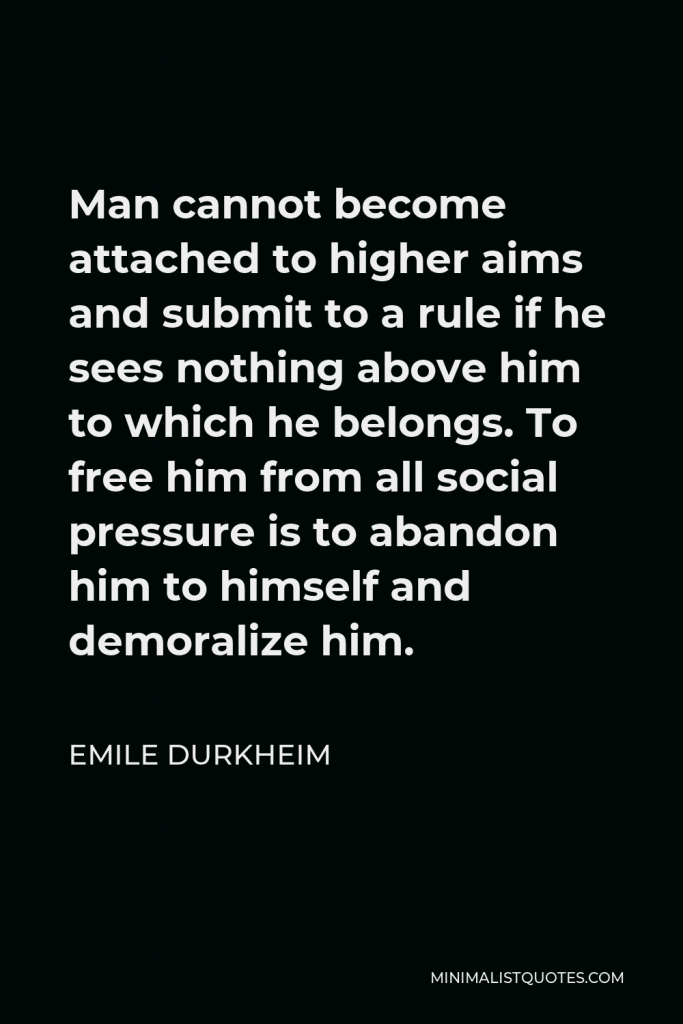

Man cannot become attached to higher aims and submit to a rule if he sees nothing above him to which he belongs. To free him from all social pressure is to abandon him to himself and demoralize him.
EMILE DURKHEIM -





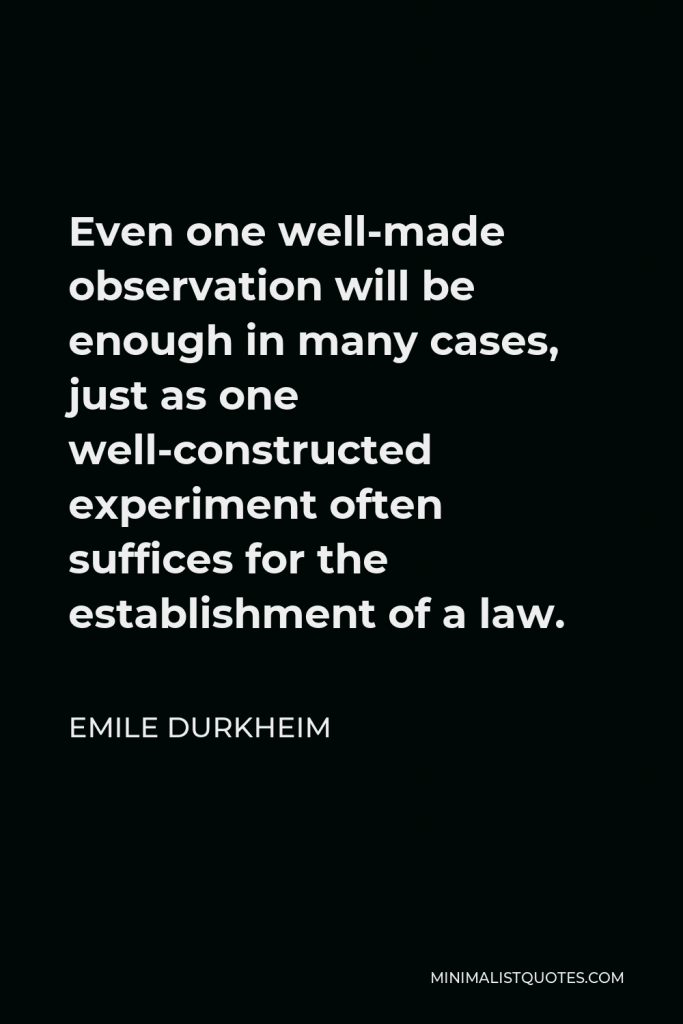

Even one well-made observation will be enough in many cases, just as one well-constructed experiment often suffices for the establishment of a law.
EMILE DURKHEIM -





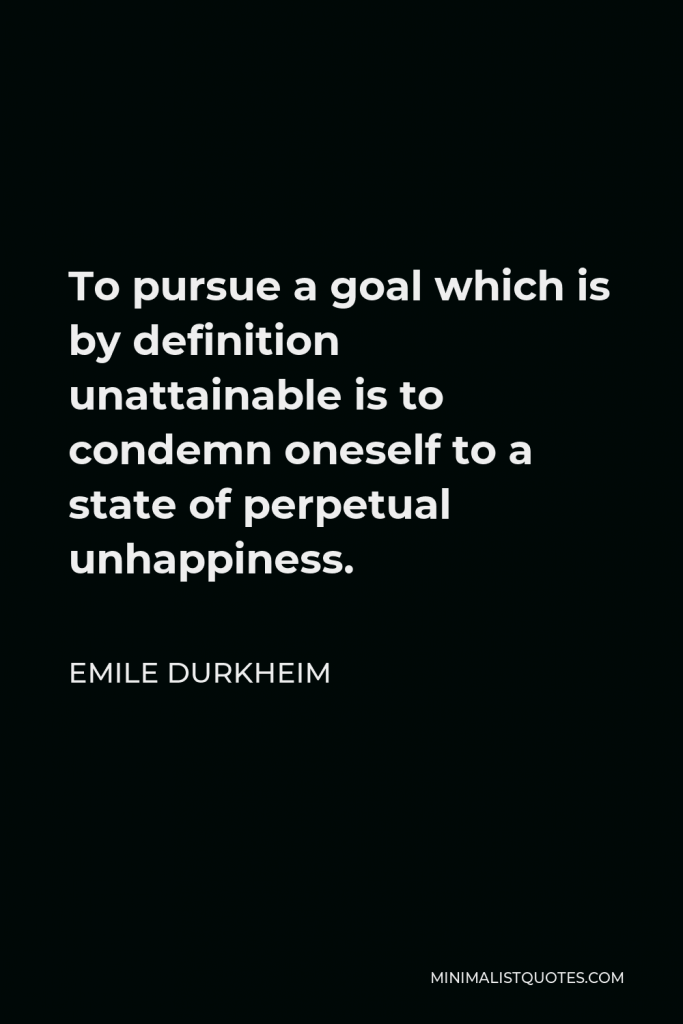

To pursue a goal which is by definition unattainable is to condemn oneself to a state of perpetual unhappiness.
EMILE DURKHEIM -







The Christian conceives of his abode on Earth in no more delightful colors than the Jainist sectarian. He sees in it only a time of sad trial; he also thinks that his true country is not of this world.
EMILE DURKHEIM -





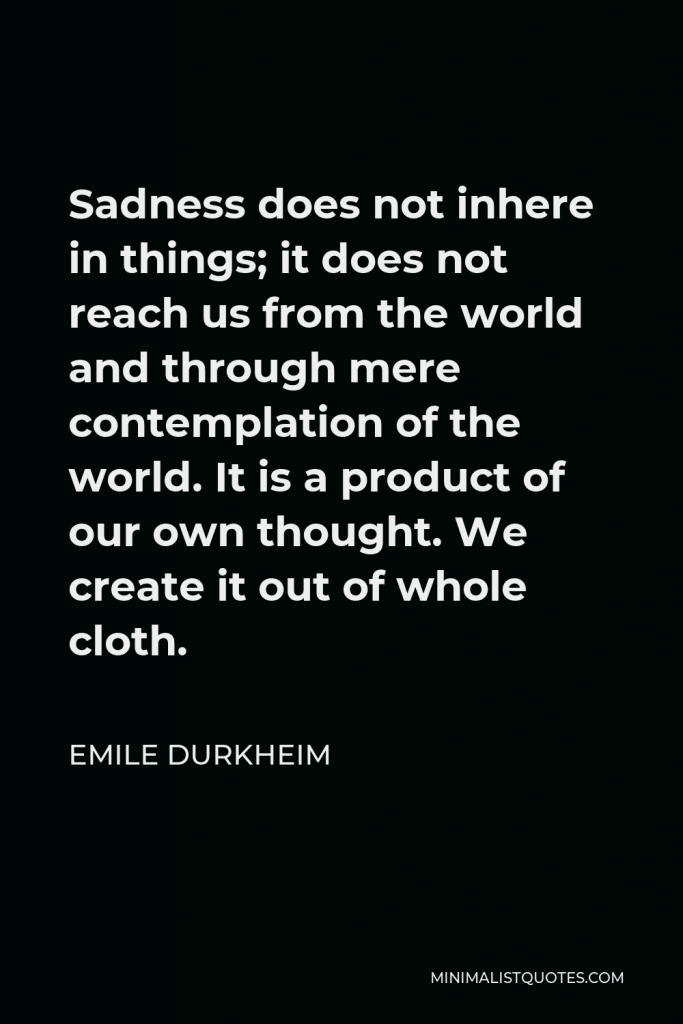

Sadness does not inhere in things; it does not reach us from the world and through mere contemplation of the world. It is a product of our own thought. We create it out of whole cloth.
EMILE DURKHEIM -







One does not advance when one walks toward no goal, or – which is the same thing – when his goal is infinity.
EMILE DURKHEIM

